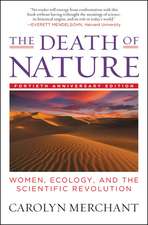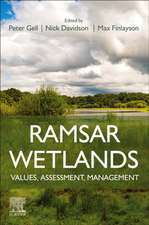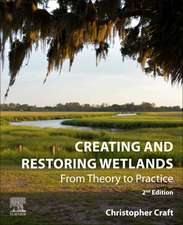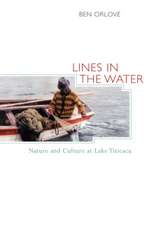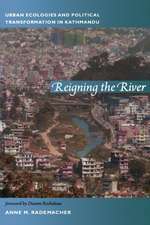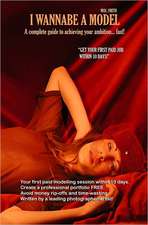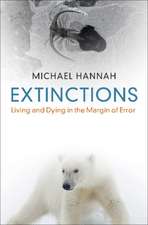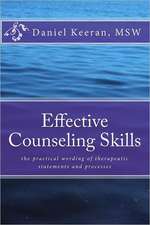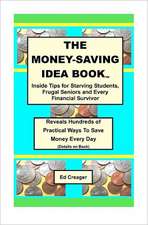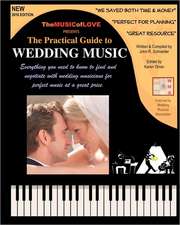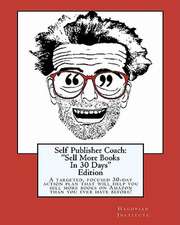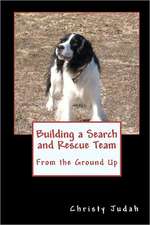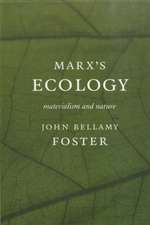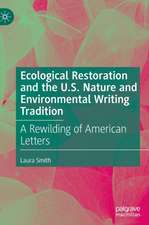Where Research Begins: Choosing a Research Project That Matters to You (and the World): Chicago Guides to Writing, Editing, and Publishing
Autor Thomas S. Mullaney, Christopher Reaen Limba Engleză Paperback – apr 2022
The hardest part of research isn't answering a question. It's knowing what to do before you know what your question is. Where Research Begins tackles the two challenges every researcher faces with every new project: How do I find a compelling problem to investigate—one that truly matters to me, deeply and personally? How do I then design my research project so that the results will matter to anyone else?
This book will help you start your new research project the right way for you with a series of simple yet ingenious exercises. Written in a conversational style and packed with real-world examples, this easy-to-follow workbook offers an engaging guide to finding research inspiration within yourself, and in the broader world of ideas.
Read this book if you (or your students):
- have difficulty choosing a research topic
- know your topic, but are unsure how to turn it into a research project
- feel intimidated by or unqualified to do research
- worry that you’re asking the wrong questions about your research topic
- have plenty of good ideas, but aren’t sure which one to commit to
- feel like your research topic was imposed by someone else
- want to learn new ways to think about how to do research.
| Toate formatele și edițiile | Preț | Express |
|---|---|---|
| Paperback (1) | 97.74 lei 3-5 săpt. | +30.09 lei 6-12 zile |
| University of Chicago Press – apr 2022 | 97.74 lei 3-5 săpt. | +30.09 lei 6-12 zile |
| Hardback (1) | 535.64 lei 3-5 săpt. | +18.94 lei 6-12 zile |
| University of Chicago Press – 12 apr 2022 | 535.64 lei 3-5 săpt. | +18.94 lei 6-12 zile |
Din seria Chicago Guides to Writing, Editing, and Publishing
-
 Preț: 192.95 lei
Preț: 192.95 lei -
 Preț: 147.57 lei
Preț: 147.57 lei -
 Preț: 133.22 lei
Preț: 133.22 lei -
 Preț: 139.84 lei
Preț: 139.84 lei -
 Preț: 96.52 lei
Preț: 96.52 lei -
 Preț: 106.52 lei
Preț: 106.52 lei -
 Preț: 210.01 lei
Preț: 210.01 lei -
 Preț: 194.53 lei
Preț: 194.53 lei -
 Preț: 99.60 lei
Preț: 99.60 lei -
 Preț: 162.48 lei
Preț: 162.48 lei -
 Preț: 147.26 lei
Preț: 147.26 lei -
 Preț: 124.16 lei
Preț: 124.16 lei -
 Preț: 122.50 lei
Preț: 122.50 lei -
 Preț: 108.27 lei
Preț: 108.27 lei -
 Preț: 145.32 lei
Preț: 145.32 lei -
 Preț: 133.32 lei
Preț: 133.32 lei -
 Preț: 132.51 lei
Preț: 132.51 lei -
 Preț: 149.63 lei
Preț: 149.63 lei -
 Preț: 103.49 lei
Preț: 103.49 lei -
 Preț: 100.37 lei
Preț: 100.37 lei -
 Preț: 99.83 lei
Preț: 99.83 lei -
 Preț: 305.98 lei
Preț: 305.98 lei -
 Preț: 147.49 lei
Preț: 147.49 lei -
 Preț: 407.91 lei
Preț: 407.91 lei -
 Preț: 107.54 lei
Preț: 107.54 lei -
 Preț: 120.87 lei
Preț: 120.87 lei -
 Preț: 157.15 lei
Preț: 157.15 lei -
 Preț: 114.49 lei
Preț: 114.49 lei -
 Preț: 140.45 lei
Preț: 140.45 lei -
 Preț: 186.13 lei
Preț: 186.13 lei -
 Preț: 172.17 lei
Preț: 172.17 lei -
 Preț: 433.53 lei
Preț: 433.53 lei -
 Preț: 115.68 lei
Preț: 115.68 lei -
 Preț: 147.40 lei
Preț: 147.40 lei -
 Preț: 158.19 lei
Preț: 158.19 lei -
 Preț: 91.96 lei
Preț: 91.96 lei - 23%
 Preț: 576.92 lei
Preț: 576.92 lei -
 Preț: 187.79 lei
Preț: 187.79 lei -
 Preț: 235.83 lei
Preț: 235.83 lei -
 Preț: 237.81 lei
Preț: 237.81 lei -
 Preț: 148.29 lei
Preț: 148.29 lei -
 Preț: 143.00 lei
Preț: 143.00 lei -
 Preț: 172.90 lei
Preț: 172.90 lei
Preț: 97.74 lei
Nou
Puncte Express: 147
Preț estimativ în valută:
18.70€ • 19.67$ • 15.45£
18.70€ • 19.67$ • 15.45£
Carte disponibilă
Livrare economică 27 martie-10 aprilie
Livrare express 12-18 martie pentru 40.08 lei
Preluare comenzi: 021 569.72.76
Specificații
ISBN-13: 9780226817446
ISBN-10: 022681744X
Pagini: 216
Ilustrații: 4 halftones, 9 tables
Dimensiuni: 140 x 216 x 25 mm
Greutate: 0.27 kg
Ediția:First Edition
Editura: University of Chicago Press
Colecția University of Chicago Press
Seria Chicago Guides to Writing, Editing, and Publishing
ISBN-10: 022681744X
Pagini: 216
Ilustrații: 4 halftones, 9 tables
Dimensiuni: 140 x 216 x 25 mm
Greutate: 0.27 kg
Ediția:First Edition
Editura: University of Chicago Press
Colecția University of Chicago Press
Seria Chicago Guides to Writing, Editing, and Publishing
Notă biografică
Thomas S. Mullaney is professor of history at Stanford University and a Guggenheim fellow. His books include The Chinese Typewriter: A History and Your Computer is on Fire. Christopher Rea is professor of Asian studies at the University of British Columbia. His books include Chinese Film Classics, 1922–1949 and The Age of Irreverence: A New History of Laughter in China.
Cuprins
Introduction
Self-Centered Research: A Manifesto
Centered Research Is the Best Research
How to Use This Book
Introversion, First. Extroversion, Second.
TRY THIS NOW: Write Here, Right Now
Part 1: Become a Self-Centered Researcher
Chapter 1: Questions
A Topic Is Not a Question
TRY THIS NOW: Search Yourself
TRY THIS NOW: Let Boredom Be Your Guide
TRY THIS NOW: Go Small or Go Home
SOUNDING BOARD: Start Building Your Research Network
You Have Questions
Chapter 2: What’s Your Problem?
Don’t Jump to a Question (or You’ll Miss Your Problem)
Stress-Testing Your Questions
TRY THIS NOW: Run a Diagnostic Test on Your Questions
TRY THIS NOW: Use Primary Sources to Educate Your Questions
TRY THIS NOW: Make Your Assumptions Visible
TRY THIS NOW: Identify the Problem That Connects Your Questions
SOUNDING BOARD: Get Leads on Primary Sources
You Have a Problem (in a Good Way)
Chapter 3: Designing a Project That Works
Primary Sources and How to Use Them (or, Fifty Ways to Read a Cereal Box)
TRY THIS NOW: Treat Your Primary Source Like a Cereal Box
TRY THIS NOW: Envision Your Primary Sources
Connecting the Dots: Getting from Sources to Arguments
Sources Cannot Defend Themselves
TRY THIS NOW: Connect the Dots Using Your Sources (in Pencil)
Taking Stock of Your Research Resources
TRY THIS NOW: Decision Matrix
SOUNDING BOARD: Is Your Decision Matrix Complete?
Two Types of Plan B
Setting Up Shop
TRY THIS NOW: Get Money for Nothing (Prepare a Formal Research Proposal)
SOUNDING BOARD: Share Your Proposal with a Trusted Mentor (Who Understands How Preliminary This Is)
You Have the Beginnings of a Project
Part 2: Get Over Yourself
Chapter 4: How to Find Your Problem Collective
Identify Researchers Who Share Your Problem
TRY THIS NOW: Change One Variable
TRY THIS NOW: Before and After
TRY THIS NOW: Map Out Your Collective (Secondary Source Search)
Rewriting for Your Collective
TRY THIS NOW: Find and Replace All “Insider Language”
SOUNDING BOARD: Does the Lay Version of My Proposal Make Sense?
Welcome to Your Collective
Chapter 5: How to Navigate Your Field
Find the Problems within Your Field
Read Your Field for Their Problems: Reimagining the “Literature Review”
TRY THIS NOW: Start Your Own “What’s Your Problem?” Bookstore (aka Organize Your Field into Problem Collectives)
TRY THIS NOW: Change Their Variables
TRY THIS NOW: Rewrite for Your Field
SOUNDING BOARD: Find a Sounding Board in Your Field
Welcome to Your Field
Chapter 6: How to Begin
Don’t Worry. It’s All Writing.
TRY THIS NOW: Create “Draft 0”
See What You Mean: Writing Draft 1
TRY THIS NOW: Move from 0 to 1
Perfection Is Boring
SOUNDING BOARD: Talk to Yourself
Welcome to Self-Centered Research
What’s Next in Your Research Journey?
TRY THIS NOW: Find a New Problem and Start a New Project
TRY THIS NOW: Help Someone Else
Acknowledgments
Further Reading
Index
Self-Centered Research: A Manifesto
Centered Research Is the Best Research
How to Use This Book
Introversion, First. Extroversion, Second.
TRY THIS NOW: Write Here, Right Now
Part 1: Become a Self-Centered Researcher
Chapter 1: Questions
A Topic Is Not a Question
TRY THIS NOW: Search Yourself
TRY THIS NOW: Let Boredom Be Your Guide
TRY THIS NOW: Go Small or Go Home
SOUNDING BOARD: Start Building Your Research Network
You Have Questions
Chapter 2: What’s Your Problem?
Don’t Jump to a Question (or You’ll Miss Your Problem)
Stress-Testing Your Questions
TRY THIS NOW: Run a Diagnostic Test on Your Questions
TRY THIS NOW: Use Primary Sources to Educate Your Questions
TRY THIS NOW: Make Your Assumptions Visible
TRY THIS NOW: Identify the Problem That Connects Your Questions
SOUNDING BOARD: Get Leads on Primary Sources
You Have a Problem (in a Good Way)
Chapter 3: Designing a Project That Works
Primary Sources and How to Use Them (or, Fifty Ways to Read a Cereal Box)
TRY THIS NOW: Treat Your Primary Source Like a Cereal Box
TRY THIS NOW: Envision Your Primary Sources
Connecting the Dots: Getting from Sources to Arguments
Sources Cannot Defend Themselves
TRY THIS NOW: Connect the Dots Using Your Sources (in Pencil)
Taking Stock of Your Research Resources
TRY THIS NOW: Decision Matrix
SOUNDING BOARD: Is Your Decision Matrix Complete?
Two Types of Plan B
Setting Up Shop
TRY THIS NOW: Get Money for Nothing (Prepare a Formal Research Proposal)
SOUNDING BOARD: Share Your Proposal with a Trusted Mentor (Who Understands How Preliminary This Is)
You Have the Beginnings of a Project
Part 2: Get Over Yourself
Chapter 4: How to Find Your Problem Collective
Identify Researchers Who Share Your Problem
TRY THIS NOW: Change One Variable
TRY THIS NOW: Before and After
TRY THIS NOW: Map Out Your Collective (Secondary Source Search)
Rewriting for Your Collective
TRY THIS NOW: Find and Replace All “Insider Language”
SOUNDING BOARD: Does the Lay Version of My Proposal Make Sense?
Welcome to Your Collective
Chapter 5: How to Navigate Your Field
Find the Problems within Your Field
Read Your Field for Their Problems: Reimagining the “Literature Review”
TRY THIS NOW: Start Your Own “What’s Your Problem?” Bookstore (aka Organize Your Field into Problem Collectives)
TRY THIS NOW: Change Their Variables
TRY THIS NOW: Rewrite for Your Field
SOUNDING BOARD: Find a Sounding Board in Your Field
Welcome to Your Field
Chapter 6: How to Begin
Don’t Worry. It’s All Writing.
TRY THIS NOW: Create “Draft 0”
See What You Mean: Writing Draft 1
TRY THIS NOW: Move from 0 to 1
Perfection Is Boring
SOUNDING BOARD: Talk to Yourself
Welcome to Self-Centered Research
What’s Next in Your Research Journey?
TRY THIS NOW: Find a New Problem and Start a New Project
TRY THIS NOW: Help Someone Else
Acknowledgments
Further Reading
Index
Recenzii
“Mullaney and Rea’s engaging volume can serve as an innovative and insightful primer for anyone about to embark on a research project. While this book’s immediate target is undergraduate and inexperienced researchers, it is written in such a compelling way that seasoned scholars beginning a new project can benefit from and return to the book again and again. Its premise is exceedingly astute but often overlooked: that the research process at its inception needs to be self-centered; that the problem must fundamentally matter to you as a researcher; that the power of research begins with a personal connection to what you have determined to write about. Through exercises, writing prompts and questions, this book productively requires your active participation. It is a book that anyone teaching research methods or introduction to research or running an undergraduate research program needs to make use of and assign to their students.”
"Mullaney and Rea have given us a little gem of a book, packed with smart, readable, compassionate guidance on the biggest question: how to start and what to do next. Read it, use it, read it again."
“A revelation. How can students—and professors like me—learn the art and craft of topic design? Fortunately, an excellent new book, Thomas S. Mullaney and Christopher Rea’s Where Research Begins, has come to the rescue. Unlike previous books in the field (such as the valuable and many-times revised The Craft of Research, published in 1995), Mullaney and Rea focus on how to release and develop your own analytical creativity, and then how to shape it into what they call “a research project that matters to you (and the world).” Where Research Begins is a gratifyingly student-centered book but it will help experienced researchers as well as beginners, teachers as well as students. For faculty members who advise graduate students, it particularly helps expose the assumptions baked into our own methods of thinking. I’ll be a better teacher for that, and my students will arrive at better research topics.”
“An updated and sanguine alternative to some of the better-known books on how to conduct research. More than just another how-to book, it’s a “how to think and question” guide focused on placing the researcher at the center of the research process. Informative and enjoyable to read, I would highly recommend it to academic librarians who are engaged in their own research, as well as those teaching students how to conduct research.”
"This easy-to-follow, innovative, and empowering book may help to make the next search for research questions easier than expected."
"This is a book we have all needed for a long time: a practical, helpful and reassuring guide for those facing the scary task of defining a research topic. With clarity, humor, and compassion, Mullaney and Rea provide a step by step guide to figuring out what interests you, why, and how to tackle the problem you have defined. Where Research Begins will prove an invaluable addition to research-centered courses as well as a guide for individual readers seeking to define their intellectual agenda."
"High-achieving students—those who undertake mentored or independent research, write undergraduate theses, apply for prestigious fellowships and awards, and complete graduate degrees—are often high achievers because they are good at following directions and pleasing others. But when does simply following the instructions result in transformative research? To be effective scholars, students need genuine curiosity and relevant research skills coupled with commitment to a problem. Compelling research becomes possible only once the problem in all its glorious complexities, implications, and associations has been identified.
In this engaging workbook, Mullaney and Rea guide their readers through a sequence of reflective exercises with the goal of defining a compelling and meaningful research problem. Equally valuable to students and to those who teach, advise, and mentor them, Where Research Begins isn’t a book you read and then return to the shelf. Instead, it’s a workbook that requires you to reflect and to document what you discover along the way. Engage with this book, and you will learn to assess your interests critically, differentiate between topics and questions wisely, understand sources dynamically, tap into networks productively, relate to your field astutely, and—ultimately—share your understandings of the process generously. We need more books of this sort: those that pull back the curtain on the intensely cerebral and iterative practice behind all research worth pursuing."
In this engaging workbook, Mullaney and Rea guide their readers through a sequence of reflective exercises with the goal of defining a compelling and meaningful research problem. Equally valuable to students and to those who teach, advise, and mentor them, Where Research Begins isn’t a book you read and then return to the shelf. Instead, it’s a workbook that requires you to reflect and to document what you discover along the way. Engage with this book, and you will learn to assess your interests critically, differentiate between topics and questions wisely, understand sources dynamically, tap into networks productively, relate to your field astutely, and—ultimately—share your understandings of the process generously. We need more books of this sort: those that pull back the curtain on the intensely cerebral and iterative practice behind all research worth pursuing."

